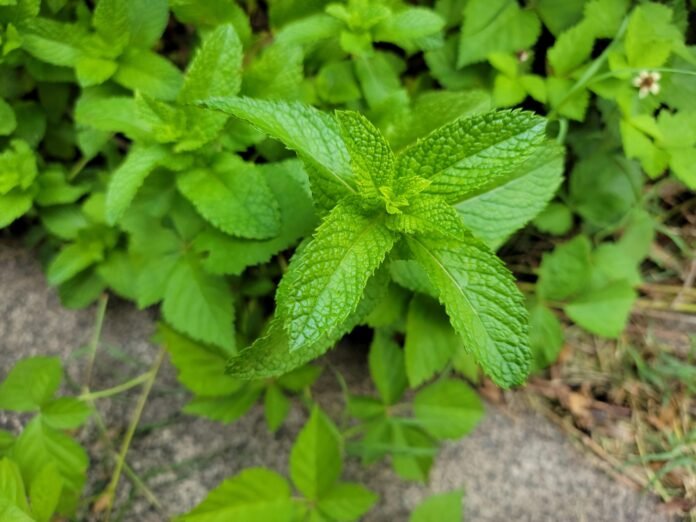Peppermint oil is from the peppermint plant, a cross between watermint and spearmint that grows in Europe and North America. Peppermint oil is commonly used as flavoring for foods and beverages and as a fragrance in soaps and cosmetics.
It’s also used for various health conditions and can be taken orally in dietary supplements or topically as a skin cream or ointment.
Peppermint oil has a wide variety of uses. Published@healthline.com, it can be used as:
- A remedy for irritable bowel syndrome, nausea, other digestive issues, and the common cold and headaches
- A topical application for relief from itching, muscle pain, and headache
- A flavoring agent for foods and products such as mouthwashes
- A fresh scent added to soaps and cosmetic products
Records of medicinal use of mint plants go all the way back to the times of ancient Egypt, Greece, and Rome.
While some potential benefits of peppermint oil are based on personal testimony, research is ongoing into the health benefits. A 2019 review of 12 trials examined peppermint oil capsules’ efficiency in treating IBS compared with a placebo. Researchers found that treatment with peppermint oil improved abdominal and other symptoms of IBS or irritable bowel syndrome.
Nausea can have many causes, and that can occur after an operation. One small 2016 study assessed the effects of inhaled peppermint oil on postoperative nausea. The researchers found that patients rated their level of nausea as lower after inhaling peppermint oil.
A 2021 study of 80 patients tested the effects of applying one drop of peppermint oil between the upper lip and the nose three times a day for five days after chemotherapy. The researchers found it lessened the severity and frequency of nausea and vomiting.
In a 2019 study comparing the effects of peppermint oil and lidocaine drops for migraine attacks, researchers found that headache intensity decreased by 40% in patients receiving either drop. Peppermint oil droplets, applied inside the nose at an angle, were shown to reduce headache frequency and pain, much like lidocaine.
Peppermint oil is often used in cosmetic products. However, there is limited research into the potential benefits of peppermint when applied to skin and hair. A 2016 study looked at the topical application of peppermint oil and its effects on chronic itching.
Researchers found that a 1% solution of peppermint oil led to improvements in how long itchiness lasted and the severity of the itch.
A 2014 study in mice compared peppermint oil to Rogaine and control compounds. The researchers found that a 3% solution of peppermint oil led to the growth of thick, long hair in mice after four weeks of treatment, similar to results from using Rogaine.
A review conducted by the US Department of Agriculture Human Nutrition Research Center on Aging at Tufts University found that peppermint has significant antimicrobial and antiviral activities periodpublished@doctoraxe.com; it also:
- works as a more potent antioxidant
- displays antitumor actions in lab studies
- displays of antitumor actions in lab studies show anti-allergenic potential
- has painkilling effects
- helps relax the gastrointestinal tract
- maybe chemo preventative
Mint aromatherapy can help unclog your sinuses and offer relief from a scratchy throat. It is a refreshing expectorant, helping open your airways, clearing mucus, and reducing congestion.
It also is one of the best essential oils for colds, flu, cough, sinusitis, asthma, bronchitis, and other respiratory conditions.
I am opening a new office in Colonia Lazaro Cardenas in March 2024!


